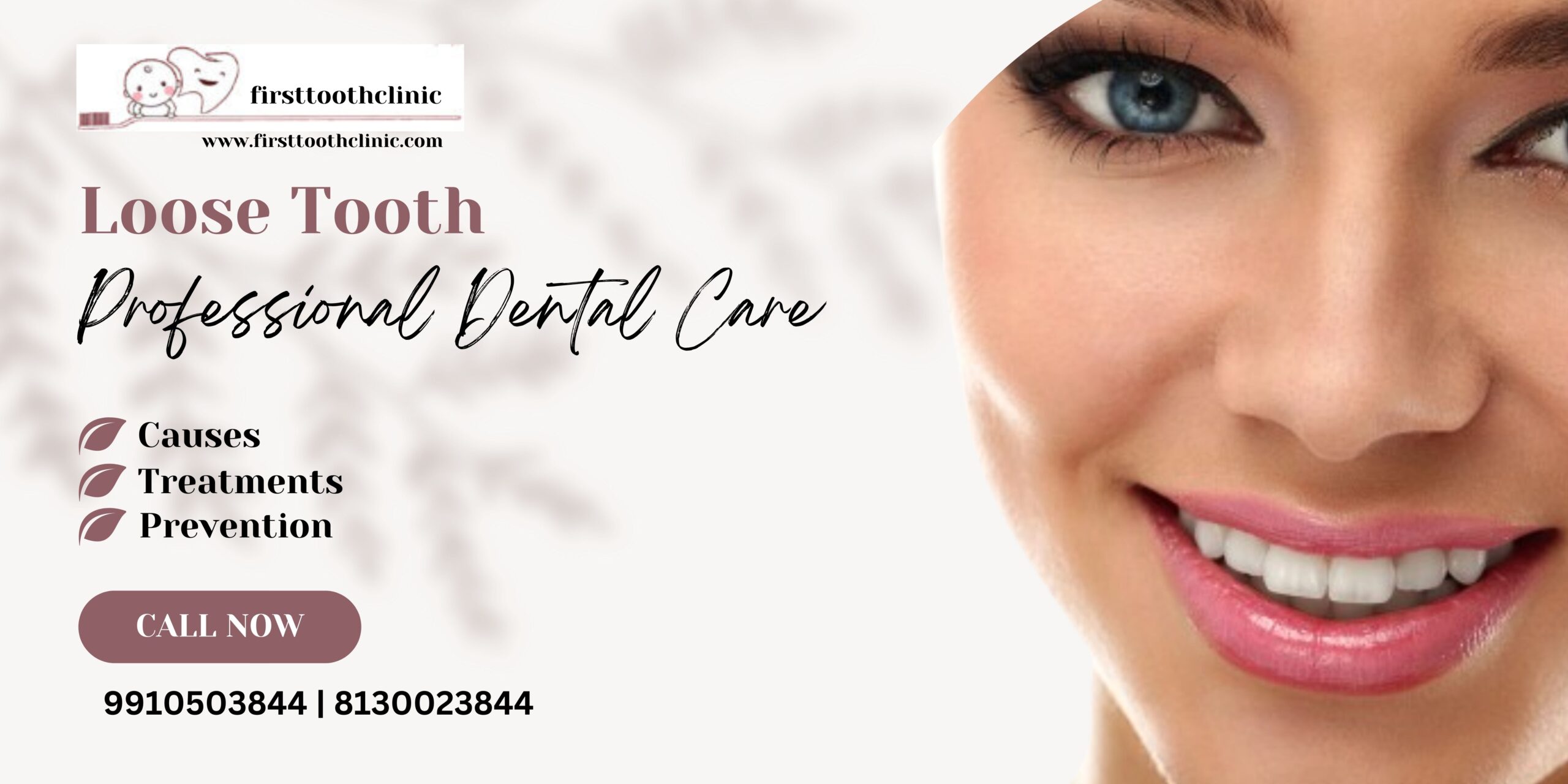
A loose tooth can be a common occurrence, especially in children, but it can also be a cause for concern. Whether you’re a parent witnessing your child’s wiggly tooth or an adult experiencing unexpected tooth mobility, understanding the causes, treatments, and prevention methods is crucial for maintaining good oral health. In this article, we’ll explore the reasons behind loose teeth, effective treatments, and preventive measures to ensure a healthy smile.
Causes of Loose Teeth | Professional Dental Care for Kids
Tooth Decay:
One of the primary causes of loose teeth is tooth decay. Cavities weaken the structure of the tooth, leading to instability. In children, poor dental hygiene and excessive consumption of sugary foods can accelerate tooth decay. With professional dental care for kids gets Regular dental check-ups and proper oral hygiene practices can help prevent tooth decay.
Gum Disease (Periodontitis):
Gum disease is a common culprit behind loose teeth in adults. When bacteria invade the gums, they can cause inflammation and destruction of the supporting structures of the teeth. This results in gum recession and loose teeth. Regular dental cleanings and thorough oral care are essential to prevent gum disease.
Trauma or Injury:
Accidents or injuries to the mouth can cause teeth to become loose. The impact can damage the ligaments and tissues supporting the teeth, leading to mobility. It’s crucial to seek immediate dental attention after any trauma to the mouth to assess and address potential damage.
Bruxism (Teeth Grinding):
Persistent teeth grinding, a condition known as bruxism, can contribute to loose teeth. The constant grinding puts excessive pressure on the teeth, causing wear and tear on the supportive structures. A dentist may recommend a nightguard to protect the teeth from further damage.
Pregnancy:
Hormonal changes during pregnancy can affect the ligaments and bones supporting the teeth, leading to increased tooth mobility. Pregnant individuals should prioritize dental care and inform their dentist about their pregnancy for tailored advice on maintaining oral health.
Treatments for Loose Teeth
Dental Splinting:
In cases of mild to moderate tooth mobility, dental splinting may be recommended. This involves bonding the loose tooth to adjacent stable teeth for support. The splint helps stabilize the loose tooth while the surrounding tissues heal.
Deep Cleaning:
For loose teeth caused by gum disease, a deep cleaning procedure, known as scaling and root planing, may be necessary. This involves removing plaque and tartar from below the gumline and smoothing the tooth roots to encourage gum reattachment.
Tooth Extraction:
In severe cases where a tooth cannot be saved, extraction may be the only option. However, advancements in dental technology and procedures offer various tooth replacement options, such as dental implants or bridges, to restore function and aesthetics.
Orthodontic Treatment:
Misaligned teeth can contribute to loose teeth. Orthodontic treatment, such as braces or aligners, can correct tooth alignment, reducing the stress on the supporting structures and preventing further tooth mobility.
Managing Bruxism:
Individuals with bruxism may benefit from interventions to manage teeth grinding. A dentist may recommend a custom-fitted nightguard to protect the teeth during sleep. Stress reduction techniques can also help alleviate bruxism.
Preventing Loose Teeth
Regular Dental Check-ups:
Routine dental check-ups are essential for early detection of dental issues. Regular cleanings and examinations enable dentists to identify and address problems before they lead to tooth mobility.
Effective Oral Hygiene:
Brushing and flossing are the foundation of good oral hygiene. Teach children proper oral care habits from an early age, and adults should maintain consistent oral hygiene practices to prevent tooth decay and gum disease.
Balanced Diet:
A well-balanced diet rich in calcium and vitamins is crucial for maintaining strong teeth and supporting structures. Limiting sugary and acidic foods can also contribute to better oral health.
Mouthguards for Sports:
Individuals participating in contact sports or activities with a risk of oral injury should use protective mouthguards. This simple measure can prevent trauma and reduce the likelihood of loose teeth.
Addressing Pregnancy-related Changes:
Pregnant individuals should inform their dentist about their pregnancy and prioritize dental care during this time. Maintaining good oral hygiene and addressing any dental issues promptly can mitigate the risk of loose teeth.
In conclusion, understanding the causes, treatments, and preventive measures for loose teeth is vital for maintaining a healthy smile at any age. Regular dental care, effective oral hygiene practices, and prompt attention to any signs of dental issues are key to preventing and addressing tooth mobility. For the best dental care in Gurgaon, make sure to choose a professional dental clinic that prioritizes your oral health and well-being. Taking proactive steps today can contribute to a lifetime of strong and stable teeth.



